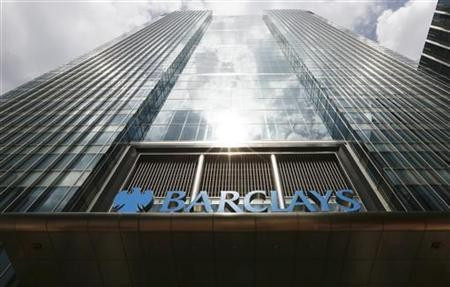Barclays Fined Record $453m for Power Market Manipulation

The Federal Energy Regulatory Commission has issued a record fine of $453m to Barclays and four of its traders for the manipulation of the physical power markets.
Ferc said in a statement that Barclays will have to pay $435m (£287m, €331m) in civil penalties and disgorge $34.9m in "unjust profits" and interest, following the US regulator's most wide-reaching market manipulation case to date.
The fine is the same amount Barclays paid US and UK authorities for rigging Libor.
The managing director of the power trading team, Scott Connelly, has been ordered to pay $15m while the other power traders, Daniel Brin, Karen Levine, and Ryan Smith, will be forced to stump up $1m each. All four traders were found guilty of manipulating physical electric energy prices in California and other western markets between November 2006 and December 2008.
However, the individual fines could be far worse as the Federal Power Act authorises penalties for such manipulation of up to $1m per day per violation.
"Ferc finds that their actions demonstrate an affirmative, coordinated and intentional effort to carry out a manipulative scheme, in violation of the Federal Power Act and Ferc's Anti-Manipulation Rule," said the regulator in the statement.
The civil penalties must be paid to the US Treasury within 30 days, otherwise an action will be filed in a US district court.
Barclays also has 30 days to distribute the unjust profits to low-income aid programmes in four US states. Nineteen percent will go to Arizona, 63% to California and 9% each to Oregon and Washington.
A major court is likely to be convened as Barclays hopes to defend itself against the allegations that it has long disputed.
"We have cooperated fully with the Ferc investigation, which relates to trading activity that occurred several years ago," said a Barclays spokesman in a media statement.
"We intend to vigorously defend this matter."
If the case does go to court, it will test the mettle of the regulator which has beefed up its enforcement division's staff from around 12 to more than 200 since 2005.
Ferc's Allegations
Last year, IBTimes UK detailed how power market manipulation would be the next big financial scandal to unfold after Barclays became the latest bank investigated by US authorities over its power trading activities.
Ferc claims that Barclays and the four traders built and then flattened substantial monthly physical index positions at four of the then-most liquid trading points in the western US, "for the fraudulent purpose of manipulating the index price to benefit Barclays' financial swap positions."
Ferc says the fines were increased after the bank and the group of traders had showed a "lack of any effort by Barclays and the traders to remedy their violations."
While the manipulation of the power markets may seem like a problem far removed from consumers, the impact of an institution being found to have violated regulations could lead to a number of ramifications.
"Consumers have the right to heat and power their homes without fear that traders are stacking the deck against them to rack up unjust profits," said Ron Wyden, chairman of the Senate's Energy and Natural Resources Committee.
When many US states deregulated the power markets in the late 1990s, it led to a number of Wall Street firms trading electricity. Buyers would bid for electricity from power generators and then consumers - or end-users- would purchase it from their local utility.
© Copyright IBTimes 2025. All rights reserved.






















